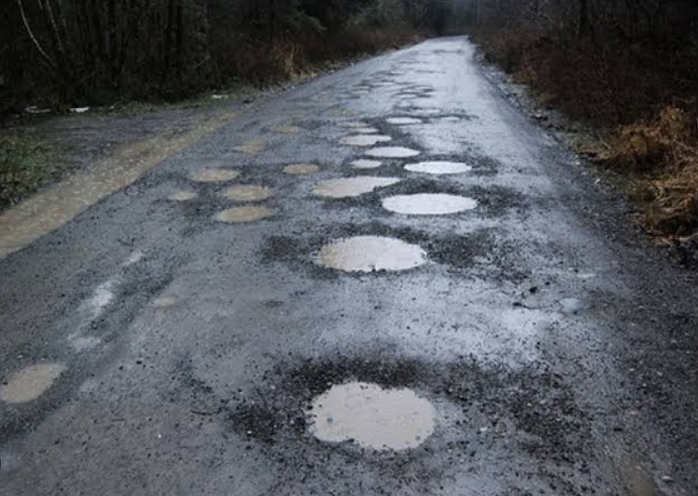Counting the Costs: The Economic Impact of Pothole Repair
by siteadmin

Potholes are not just a nuisance on our roads; they also come with a hefty price tag. The economic impact of pothole repair extends far beyond the cost of filling in the holes themselves. In this blog post, we’ll delve into the economic ramifications of potholes and explore why investing in timely repairs is crucial for both governments and individuals.
Vehicle Damage:
One of the most significant economic impacts of potholes is vehicle damage. Hitting a pothole can cause a range of issues, from bent rims and misaligned wheels to damaged suspension systems and even punctured tires. The resulting repairs can be expensive, with costs ranging from hundreds to thousands of dollars per incident. Multiply this by the thousands of drivers who encounter potholes each year, and the economic toll becomes clear.
Increased Maintenance Costs:
Potholes don’t just damage vehicles; they also accelerate wear and tear on roads themselves. As potholes worsen, they create a domino effect, leading to more extensive damage and necessitating costly repairs. Regular maintenance, such as filling potholes and resurfacing roads, is essential to prevent further deterioration and mitigate long-term repair costs. However, delaying these repairs only leads to more extensive damage and higher expenses in the long run.
Congestion and Delays:
Potholes can also contribute to traffic congestion and delays, further impacting the economy. Swerving to avoid potholes can disrupt traffic flow and lead to accidents, while road closures for repair work can cause backups and lengthy detours. The resulting delays can have ripple effects across the economy, affecting productivity, transportation logistics, and business operations.
Impact on Businesses:
For businesses located on pothole-ridden roads, the economic impact can be particularly severe. Poor road conditions can deter customers from visiting establishments, leading to decreased foot traffic and lost revenue. Additionally, delivery vehicles may incur damage or experience delays, impacting supply chains and operational efficiency. Investing in pothole repair not only benefits individual drivers but also supports local businesses and economic vitality.
Property Values:
Pothole-riddled roads can also affect property values in affected areas. Potential homebuyers may be deterred by deteriorating infrastructure, leading to decreased demand and lower property prices. Conversely, well-maintained roads enhance neighborhood appeal and contribute to higher property values. Investing in pothole repair is not just about fixing roads; it’s about protecting property investments and fostering economic growth.
The economic impact of pothole repair is substantial, affecting individuals, businesses, and communities alike. By addressing potholes promptly and investing in regular road maintenance, governments can mitigate vehicle damage, reduce maintenance costs, alleviate congestion, support local businesses, and preserve property values. Ultimately, prioritizing pothole repair is not just a matter of convenience; it’s a sound economic investment that pays dividends in the form of safer roads, smoother traffic flow, and a stronger economy overall.
Potholes are not just a nuisance on our roads; they also come with a hefty price tag. The economic impact of pothole repair extends far beyond the cost of filling in the holes themselves. In this blog post, we’ll delve into the economic ramifications of potholes and explore why investing in timely repairs is crucial…
Recent Posts
- Balancing Act: Environmental Impact and Sustainability in Asphalt Paving
- Smooth Moves: Asphalt Paving Maintenance Strategies for Sustaining Smoothness
- Innovating Asphalt Paving: Exploring Advanced Asphalt Mix Design Methodologies
- The Importance of Pothole Repair: Health Impacts of Pothole-Related Accidents
- Understanding Chemical Exposure and Its Impact on Asphalt Degradation
